On April 5th…
“In history a great volume is unrolled for our instruction, drawing the materials for future wisdom from the past errors and infirmities of mankind.”
~ Edmund Burke
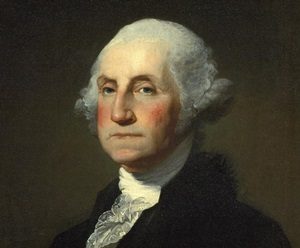
1792– George Washington exercised the first presidential veto of a Congressional bill. The bill introduced a new plan for dividing seats in the House of Representatives that would have increased the amount of seats for northern states. After consulting with his politically divided and contentious cabinet, Washington, who came from the southern state of Virginia, ultimately decided that the plan was unconstitutional because, in providing for additional representatives for some states, it would have introduced a number of representatives higher than that proscribed by the Constitution.
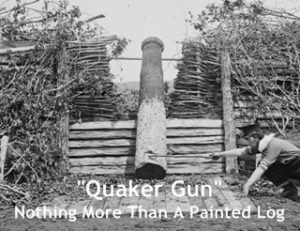
1862– Union forces under General George McClellan arrived at Yorktown, Virginia, and established siege lines instead of directly attacking the Confederate defenders … Big Mistake (and McClellan made many of them).
McClellan was discouraged by what he thought was a substantial force resting inside of strong and well-armed fortifications near Centerville, VA. The Confederates he saw were actually 11,000 troops under General John B. Magruder. Although vastly outnumbered, Magruder staged an elaborate ruse to fool McClellan. He ordered “Quaker Guns” (logs painted black) placed in redoubts to give the appearance of numerous artillery pieces. Magruder marched his men back and forth to enhance the illusion. The performance worked, as McClellan was convinced that he could not make a frontal assault.
He opted to lay siege instead. Not until May 4 did Magruder’s troops finally abandon Yorktown, giving the Confederates valuable time to gather their troops near Richmond. The campaign climaxed in late June when McClellan was driven away from the gates of Richmond in the Seven Days’ battles.
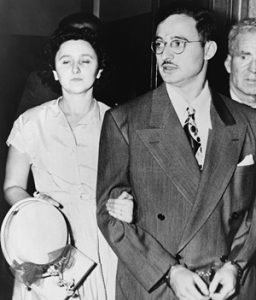
1951– At the end of a highly publicized espionage case, death sentences were imposed against Julius and Ethel Rosenberg, one week after the couple were found guilty of conspiring to transmit atomic secrets to the Soviet Union.
The trial occurred at the height of the “red scare” in the early 1950s, and critics of the case argued that the political climate of the time made a fair trial impossible. The Rosenbergs maintained their innocence, but David Greenglass (Ethel’s brother who had been stationed near the Los Alamos atomic testing site during World War II and had pleaded guilty), agreed to testify against them.
At the trial’s end in the spring of 1951, David Greenglass was sentenced to 15 years in prison, and the Rosenbergs were sentenced to death. Despite court appeals and pleas for executive clemency, the Rosenbergs, the first U.S. civilians to be given the death penalty in an espionage trial, were executed by electrocution on June 19, 1953.
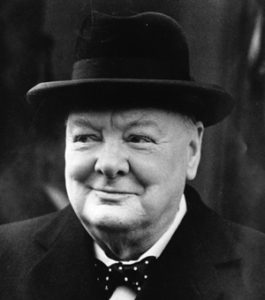
1955– Sir Winston Leonard Spencer Churchill, the British leader who guided Great Britain and the Allies through the crisis of World War II, retired as prime minister of Great Britain.
After the outbreak of World War II in Europe, Churchill replaced Neville Chamberlain as prime minister of a new coalition government. In the first year of his administration, Britain stood alone against Nazi Germany, but Churchill promised his country and the world that Britain would “never surrender.” He rallied the British people to a resolute resistance and expertly orchestrated Franklin D. Roosevelt and Joseph Stalin into an alliance that eventually crushed the Axis.
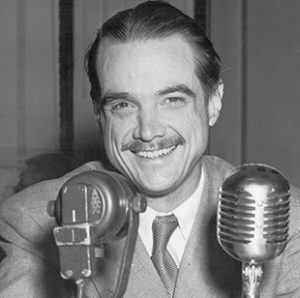
1976– Howard Robard Hughes, one of the richest men to emerge from the American West during the 20th century, died while flying from Acapulco to Houston.
A successful film producer, Hughes also invested heavily in the burgeoning aviation industry. He became increasingly reclusive after 1950. Operating through managers who rarely saw him in person, he bought up vast tracts of real estate in California, Arizona, and Nevada that skyrocketed in value.
In 1967, he became involved in the Nevada gambling industry when he purchased the Desert Inn Hotel on the Las Vegas strip. By the early 1970s, Hughes had become the largest single landholder in Nevada, and with around 8,000 Nevada residents on his payroll, Hughes was also the state’s largest employer.
In his final years, the billionaire became even more obsessed with privacy. He continually moved between his residences in Las Vegas, the Bahamas, Nicaragua, Canada, England, and Mexico. Other than a few male aides, no one saw Hughes, and he sometimes worked for days at a stretch in a black-curtained room without sleeping.
Emaciated and deranged from too little food and too many drugs, Hughes finally became so ill that his aides decided that he needed medical treatment. He died in his airplane en route from Acapulco to Houston at the age of 70.
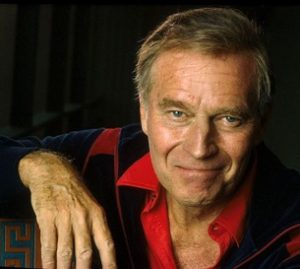
2008– Actor Charlton Heston died at the age of 84. His death certificate listed pneumonia as the cause of death.
He appeared in 100 films over the course of 60 years. His most memorable roles were in The Greatest Show On Earth (1952), Secret of The Incas (1954), The Ten Commandments (1956), Touch of Evil (1958), The Big Country (1958), Ben-Hur (1959), for which he won the Academy Award for Best Actor, El Cid (1961), The Greatest Story Ever Told (1965), The Agony and The Ecstasy (1965), Planet of The Apes (1968), Soylent Green (1973), and Midway (1976).
He created a whirlwind of controversy at the 2000 NRA convention when he raised a rifle over his head and declared that a potential Al Gore administration would take away his Second Amendment rights “from my cold, dead hands.”
On August 9, 2002, he publicly announced that he had been diagnosed with symptoms consistent with Alzheimer’s disease. In July 2003, in his final public appearance, Heston received the Presidential Medal of Freedom at the White House from President George W. Bush.
Compiled by Ray Lemire ©2018 RayLemire.com. All Rights Reserved.